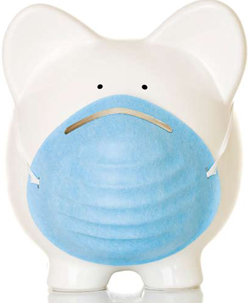Important Information Regarding H1N1 Virus
- Written by Super User
- Published in News
- Read 4865 times
- font size decrease font size increase font size
 There is presently much speculation as to the impact that the H1N1 virus will have on Canadians over the next few months. Organizations have been urged to stress to their members steps that should be taken to prevent the spread of the virus, and to have plans in place to alleviate any hardships that may come of the spread of H1N1.
There is presently much speculation as to the impact that the H1N1 virus will have on Canadians over the next few months. Organizations have been urged to stress to their members steps that should be taken to prevent the spread of the virus, and to have plans in place to alleviate any hardships that may come of the spread of H1N1.
The Bradford Minor Ball Hockey League is looking to put specific steps in place to reduce the spread of any infection in the ball hockey environment and we urge you to remind your teams of the following.
Team staff need to emphasize to players and parents the need for total cooperation in all aspects concerning hygiene, but specifically to the prevention of the transmission of the H1N1 virus. The following are recommended steps within the team environment:
1. Players should be urged to report all illnesses to their parents, coaches and the safety person/trainer. Parents of players and adult players are urged to keep away from the hockey environment if they are showing any signs of infectious disease or virus. Sick players are encouraged to see their physician if showing signs or symptoms of the H1N1 virus, and to be fully recovered prior to returning to play.
2. Players should be encouraged to wash hands routinely and always after handling hockey equipment. Frequent hand washing with soap and water is one of the best preventions we can recommend. Teams are encouraged to carry extra hand soap or hand sanitizer as not all arenas have this readily available.
3. Talk to your players about using their arm when covering their mouths and nose when coughing or sneezing as opposed to their hands.
4. Advise players to try and not touch their own mouths or nose when in the hockey environment to reduce the chance of them passing an infection on to themselves.
5. Ensure all players and staff have their own water bottles labeled with names and players numbers. Sport drink bottles should be avoided as direct lip contact is possible when drinking.
6. Officials and coaches should avoid drinking from other water bottles and have water readily available to them on their respective benches.
7. Towels should be removed from all benches. Players should not share towels, clothing, bar soap or other personal items such as razors.
8. During handshakes at the end of games keep your gloves on and tap gloves instead of removing them to shake hands with players, team staff or officials.
9. Players, team staff and officials should refrain from spitting on the playing suface, benches or around the arena.
10. Assist athletes in protecting their immune system by stressing they get sufficient sleep, that they do not over train and that they get proper nutrition.
You may find additional information on the Health Canada website at http://www.hc-sc.gc.ca/index-eng.php, or on your applicable provincial/territorial sites.

